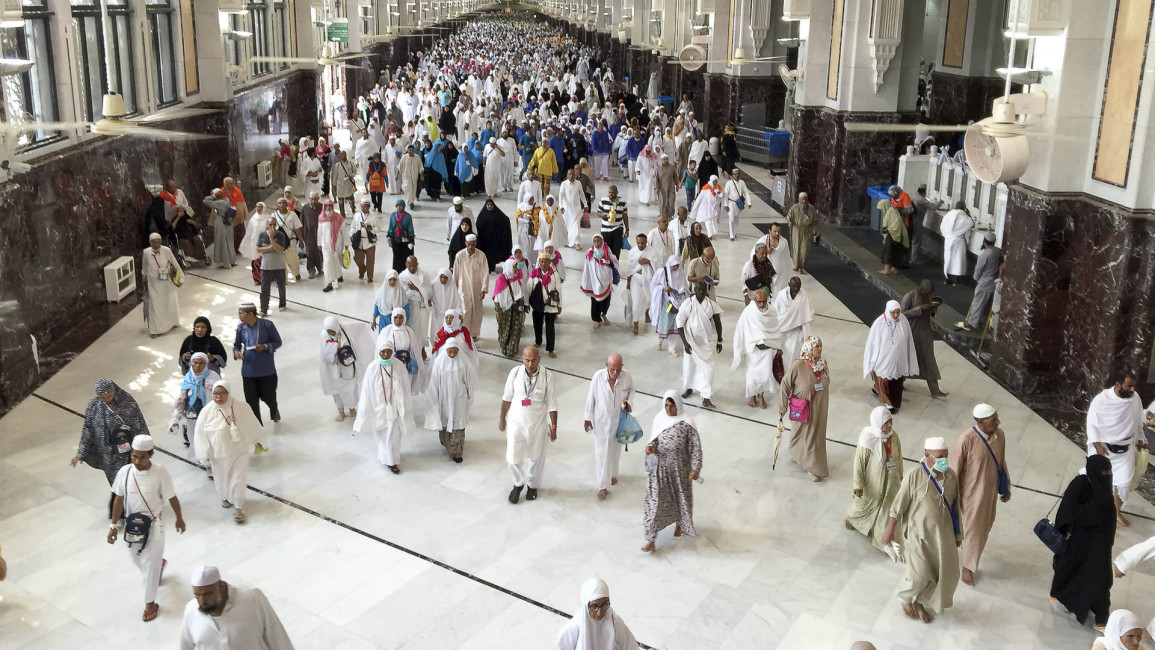
Handshake 'snub' draws Iranian support but Saudi ire
A short video clip published by the Iranian owned Al-Alam ["The World"] news channel and distributed on pro-Houthi websites has become the latest focal point in a growing propaganda war between Saudi Arabia and Iran, centred on the annual Hajj pilgrimage to Mecca.
The video clip purports to show a Yemeni pilgrim, part of a reception of pilgrims preparing to meet Saudi King Salman bin Abdul Aziz, snubbing the monarch when offered a handshake.
The actions of the hajji, dressed in traditional Yemeni wear, stand in contrast to those of the other pilgrims in the video. For his part King Salman appears somewhat befuddled.
Iran supports Houthi rebels aligned with former President Ali Abdallah Saleh in the ongoing war in Yemen, in whch they are fighting forces loyal to standing President Abdrabbuh Mansour Hadi, who is backed by Saudi Arabia.
Riyadh accuses Tehran of being a key military sponsor of the Houthi insurgency and is engaged in an extensive air and ground campaign in Yemen.
In response, some pro-Saudi activists have claimed, on social media, that the Yemeni pilgrim had an amputated right hand, and chose not to offer his left hand in handshake to the Saudi monarch. Others have asked why the anonymous pilgrim would have travelled on Hajj and attended a reception with Salman only to decline the offer of a handshake.
|
|
||
In May, Tehran banned its citizens from travelling to Saudi Arabia to perform Hajj following a stampede at last year’s pilgrimage that Iran says resulted in the deaths of 464 Iranians.
While independent watchdogs claim a total of more than 2,000 people died, Saudi officials put the death toll at just 769, and blamed some pilgrims for failing to follow directions at the entrance of a site in Mina in Mecca, leading to overcrowding.
Diplomatic ties between the two states have since been cut amid growing animosity also related to ongoing conflicts in Syria, Yemen, and Iraq, and the January execution of Saudi Shia Sheikh Nimr el-Nimr.
Earlier this week the hashtag "Hajj Without Iran is Organised and Safe" (in Arabic: الحج_بدون_ايران_تنظيم_وامان) began trending on Twitter with some users making derogatory comments about Shia Muslims and claiming that Sunni Muslims conduct themselves "better" than Iranians during Hajj.
Others claimed that the absence of Iranian pilgrims at this year's Hajj meant that proceedings were running more smoothly.
Some Saudi religious and academic figures, observing the large number of Iranian pilgrims travelling to the Shia Iraqi shrine city of Karbala, also claimed that Iran was trying to foment a sectarian war between the two countries.
For its part, Iran has not backed down from the verbal confrontation. In early September, Iran's Supreme leader Ayatollah Ali Khamanei described the Saudi Arabian leaders as "puny Satans" who had reduced Hajj to a "religious-tourist trip" while accusing the Saudi state of culpability in last year's tragic hajj events.
"The heartless and murderous Saudis locked up the injured with the dead in containers - instead of providing medical treatment and helping them or at least quenching their thirst," Khamenei said at the time.
"The world of Islam must fundamentally reconsider the management of the two holy places (a reference to Mecca and Medina) and the issue of Hajj," he added.




